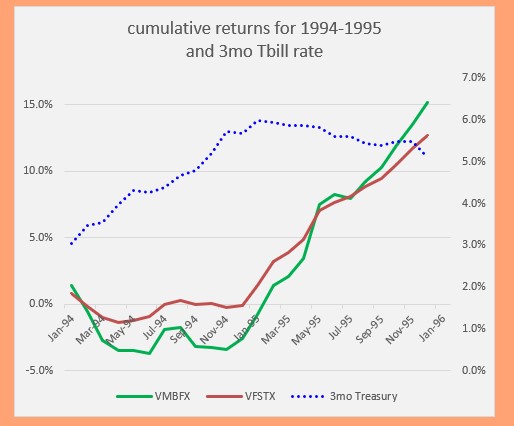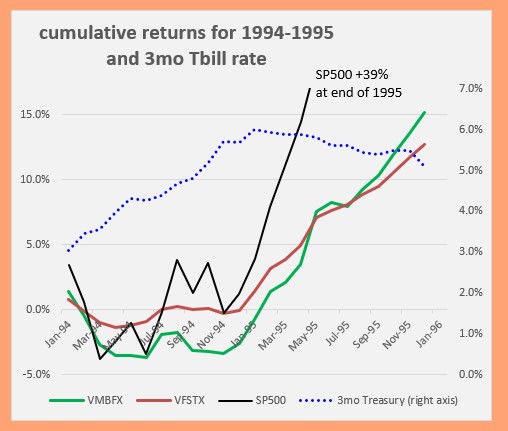We bit the bullet and sold all intermediate and long-term bond funds (tIRA). Kept the short-term bond fund for the time being in our tIRA. We'll be doing a Roth conversion next year with those funds. We laddered T-bills through VG with a portion of that (1/4) to 3 years. At least keeping our principal with 1.8-2.7% interest. The rest are in a money market waiting to re-evaluate in a couple of months.
Appreciate the interview which presented some optimism for a soft landing. Getting out of emerging markets. DH has a catastrophe in his Roth with those funds. MYGA looks interesting. What can you say? Talk/listen to smart people and react to the best of your comfort zone.
Appreciate the interview which presented some optimism for a soft landing. Getting out of emerging markets. DH has a catastrophe in his Roth with those funds. MYGA looks interesting. What can you say? Talk/listen to smart people and react to the best of your comfort zone.


